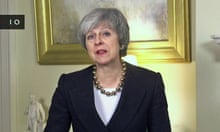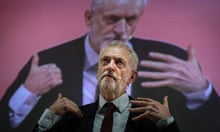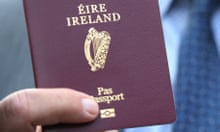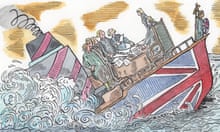Pharmaceutical organisations working with Whitehall to maintain medicine supplies in the event of a no-deal Brexit have signed 26 “gagging orders” that bar them from revealing information to the public.
Figures show that 16 drug companies and 10 trade associations have been asked to sign non-disclosure agreements (NDAs) which prevent them from revealing any information related to contingency plans drawn up with the Department of Health and Social Care.
It means that the government has now asked at least 60 partners working on no-deal preparations across Whitehall to sign such agreements, angering transparency campaigners and MPs.
Theresa May’s government has been accused of controlling the release of information about no-deal preparations to try to force Conservative MPs to back the prime minister’s Brexit agreement through parliament.
The prime minister has previously condemned the use of NDAs by employers. She told parliament in October that it was clear they were being used “unethically”.
The figures were released on Friday after a parliamentary question from the Labour MP Rushanara Ali.
Stephen Hammond, the health minister, replied, saying: “Since July 2016, the department has signed 16 non-disclosure agreements with private companies and 10 with trade associations related to our medical supply no-deal Brexit contingency planning.”
Ali, MP for Bethnal Green and Bow, said the number of agreements being used to silence firms showed a “shocking disregard” for the public’s right to know about any threats to public health.
“It is utterly unacceptable for the government to use non-disclosure agreements with pharmaceutical businesses and trade associations,” she said. “By effectively ‘gagging’ these organisations, these secretive agreements are preventing essential information from being shared, are undermining transparency and are hampering businesses’ ability to speak out.”
The Department for Transport has 28 NDAs in force, forbidding firms and organisations from discussing plans on managing haulage in Kent, the border and customs, it emerged last month.
The Department for Exiting the European Union (DExEU) has six and told reporters they were “entirely normal practice”.
Whitehall is being so secretive that information is only being provided to some firms orally, or via hard copies of documents that must be returned at the end of meetings.
The government has been in close contact with the pharmaceutical industry, which is stockpiling drugs to ensure access to vital medicines if supply routes are disrupted by delays at the border.
A template NDA, which was published by the Department of Health and Social Care in response to another written parliamentary question from Labour, states that the government “will need to share confidential and sensitive information about customs and border arrangements and supply routes”.
People attending meetings with civil servants are required not to divulge what they have heard, “not to take or make a copy of any papers provided for a meeting”, and “to return at the end of each meeting where requested any papers or material provided by the department”.
NDAs require parties to keep confidentiality for a defined period of time. It is up to the parties to decide what would be considered confidential and what is not.
Last week, Matt Hancock, the health secretary, was criticised for apparently boasting that he had become “the largest buyer of fridges in the world” as part of a plan to stockpile essential medicines.
The government has set up a team of troubleshooters to tackle problems in the NHS in the event of a no-deal Brexit. Hancock said he was arranging for special flights to bring medicines from the Netherlands to beat anticipated shortages.
The troubleshooting team started work this month, before the government stepped up its no-deal preparations as a result of the political deadlock over May’s Brexit deal.
In his reply to Ali’s question, Hammond defended the use of NDAs. “By signing non-disclosure agreements, the department can talk to the industry in confidence prior to making public statements and issuing advice. This means that when we go out to the whole industry we can be confident that any requests of them are clear appropriate and deliverable,” he said.









